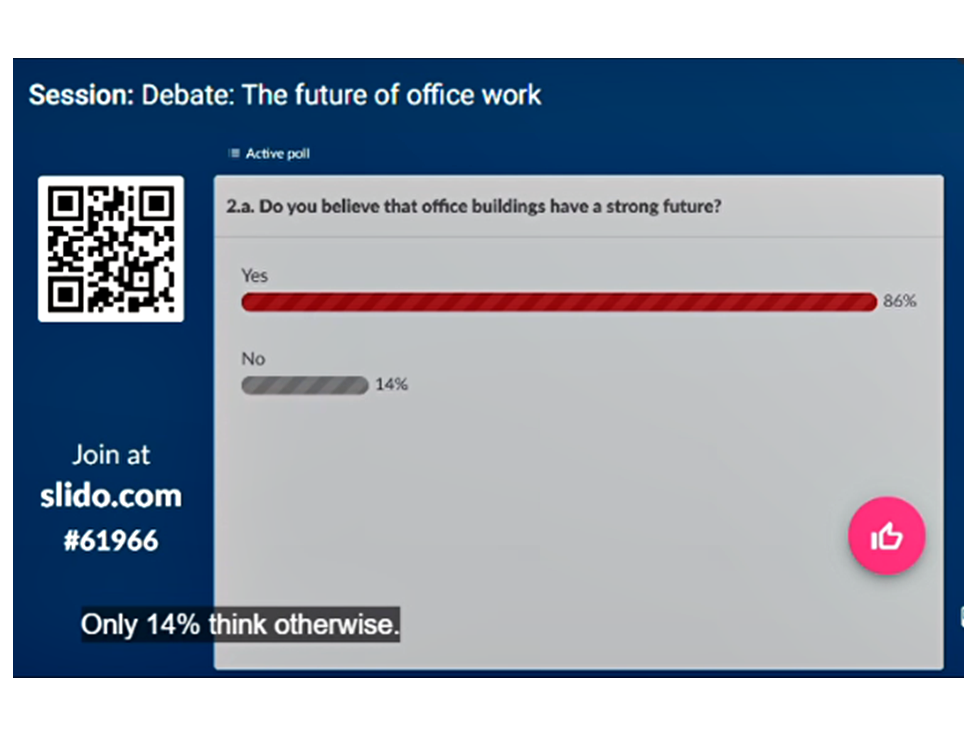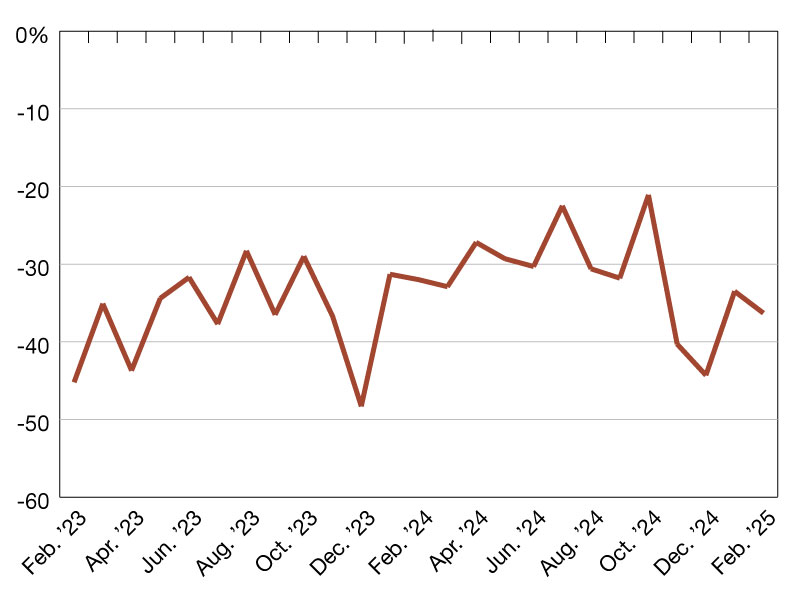ULI Europe Debate: The Future of Office
Top executives debate the sector’s competitiveness and resilience at the 2021 ULI Virtual Europe Conference.
Uncertainty in the office sector lingers as the pandemic continues to unroll. Technology, people’s demands and sustainability are the main drivers—and these are linked together by a common theme: “The office as a contribution to the community and the built environment,” as stated by Alex Gebauer, CEO of Allianz Real Estate, one of the speakers at the 2021 ULI Virtual Europe Conference.
READ ALSO: What to Expect From the Office Sector in 2021
On the second day of the event, Chris Kane, founder of Six-Ideas, a global consultancy focused on workplace development and innovation, virtually met Nathalie Charles, BNP Paribas Real Estate Investment Management’s deputy chief executive officer & global head of investment management, in an Oxford-style debate on the future of the office sector. Duncan Swinhoe, co-managing principal at architecture firm Gensler, moderated a thought-provoking discussion that tried to establish if occupiers will streamline their office space utilization while successfully adapting to working remotely or if landlords will have the ability to lure back office-users. ULI’s live survey results—according to which 86 percent of participants believe office buildings have a strong future—served as a hot conversation starter.
Human-Centric Needs
The office sector’s resilience is mainly driven by the people’s desire to be connected and the importance of interactions, according to Charles, who believes that “offices are about people”. To that extent, interpersonal interactions help us develop ideas and the office serves as an incubator of innovation.
Furthermore, the need to have all of our five senses stimulated is paramount; otherwise, we become frustrated and end up underperforming as an individual and as a whole, Charles noted. She also talked about movement as the act of being energized—which takes up multiple shapes such as commuting or using the subway again, as well as rituals, or “our need to have frameworks in which we feel secure in both professional and personal levels”.
Rethinking Systems, Reforming Views
While Kane agreed that the need for interpersonal relations is undeniable, he invited the audience to take a step back to see the bigger picture: The basic systematic change fueled by the coronavirus “revealed the Achilles’ heel of commercial real estate. COVID-19 poured fuel on the flames of change.”
The current work-from-home situation is too narrow, in Kane’s opinion—the real issue is actually work-from-anywhere. “The real estate industry needs to accept there are fundamental structural changes taking place in the market… The game changed and COVID-19 changed the entire stadium,” he said. What’s more, work-from-home also changed tenant expectations. The massive shift from a fixed work environment to a fluid one can’t be satisfied by the current offer, Kane noted, as the present landowner operating system is cumbersome and inflexible.
READ ALSO: Embracing the World of Outdoor Workspaces
After almost one year of pandemic disruption, 2021 is not necessarily a brand new starting point for the office world. There are millions of square feet of office space still vacant, Charles noted. And while this stock is currently not sustainable, converting these spaces into other use, such as residential, is simply not possible. “Real estate doesn’t work like this because it is extraordinary where it is,” Charles said.

Session attendees: Duncan Swinhoe (top row), Chris Kane and Nathalie Charles. Image via Urban Land Institute
According to Kane, the need for some fresh thinking in the industry targets shifting consumer needs. From this perspective, the industry is “costly, convoluted and confrontational”. In order to reframe everyone’s approach to growth, one needs to apply the ‘two heads are better than one’ principle—”especially when the other head is your customer”, Kane pointed out. To that extent, it’s pivotal to get together to figure out a better system for providing and consuming real estate.
From an investment standpoint, the consumer does not represent the specificity of real estate. In Charles’ opinion, both investors and customers have to adjust at the same time, while aiming to serve those clients by finding the right solutions for their occupiers. And that is where innovation is needed. “We are at a time of friction, question marks, uncertainties, and the way we will tackle that is with a lot of innovation in the coming months and years,” she added.
Office vs. People vs. Place
There’s an existing office stock in place that can be innovated and developed in order to support human-centric connectivity to business, Swinhoe noted. But isn’t innovation and the replication of interaction more difficult to produce in a more atomized environment, far from physical office spaces?
Nearly all participants in a recent Deloitte survey think work from home will be a substantial part of their workforce in the future. Many will follow the model going forward. And so, a better, but also smarter approach is needed. Dropbox, for example, rebranded its office buildings and allowed its staff to work in those spaces, but not at their creative studios. Similarly, after the consecutive lockdowns in Paris, Charles kept coming back to the office to discuss with younger employees their views on the current situation. One thing was clear: They didn’t want to be isolated, often yearning to escape their often small or noisy personal space.
On a forward-looking note, a big debate on the definition of office and place is needed, according to Kane. The previous organizational patterns had the office and people serving as pillars. The focus has now shifted on people and places, especially now when employees are more sensitive to what their companies bring to the table. “The office is part of the industrial age legacy. Everything is going to be redefined like never before.” That’s why both consumers and providers need to get together to innovate, to figure out what the new model will look like. “Of course—by using the existing stock, but we’ve got to use it in a smarter, more sustainable manner”, Kane concluded.








You must be logged in to post a comment.